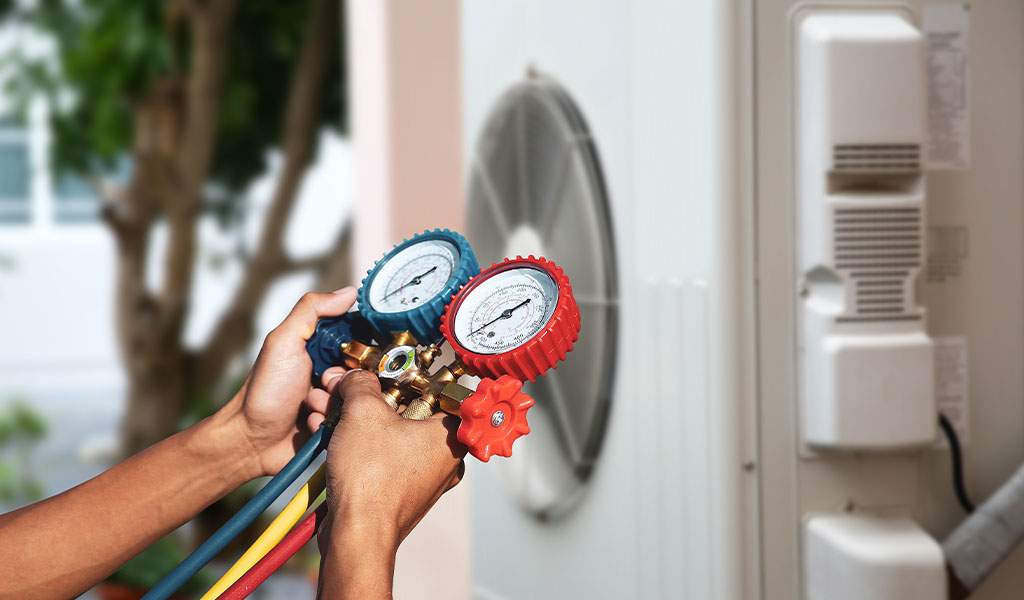Heat Pump Services
Most Common Heat Pump Problems
Heat pumps encounter many of the same problems as furnaces, such as no hot air, weak airflow, or no power. Dirty parts and faulty thermostats are often the culprits behind these issues.
However, since a heat pump can also serve as a cooling unit, it may also develop leaks or low refrigerant levels. This is especially true for split-system heat pumps, as these get charged in the field.
The Benefits and Advantages of Heat Pumps
Efficient Heating and Cooling for Less
Heat pumps can give three to four times more heat using the same energy a traditional furnace uses. This means that you get more heat with a heat pump while consuming less energy. The higher amount of heat it delivers also means you can keep your home warmer longer than if you used a furnace.
Energy Consumption
Space heating and cooling alone accounts for over half of an average US home's energy use. However, space heating uses up to five times more energy than air conditioning. Space heaters comprise over 40% of a home's energy usage, while it's only about 8% for air conditioners.
Lower Carbon Footprint
Scientists say that heat pumps can be a key player in reducing greenhouse gas emissions by 12%. Their use, combined with regulatory measures, can help make the air less polluted. This is especially true for carbon dioxide (CO2) emissions.
So, by switching to heat pumps, you can reduce your home's carbon footprint. This, in turn, gives you a chance to do your part in conserving the environment.
Indoor Air Quality
GHG's don't only contribute to climate change; they also cause a spike in air pollution. They can also alter pollutants, create even more of it, and further contaminate the air. This polluted outdoor air can then enter your home and affect your entire family's health.
That's why you should invest in more energy-efficient systems, such as heat pumps. They bring more than financial benefits; they can also help boost your indoor air quality.
Start Your Service Request
We know your time is valuable. Select the day and time that you would prefer and we will contact you ASAP, and work with your schedule for a hassle free experience.
Heat Pumps Can Be a Smart Alternative to Traditional Heating
The best way to know for sure is to have an HVAC expert carry out a home assessment for you. This way, they can help you determine if you’ll benefit from heat pump services.
Are you interested in heat pumps but aren’t sure if they’re your smartest choice? If so, then please feel free to get in touch with us here at 1-800-Plumber +Air! We’ll be happy to provide you with the guidance you need.
Need Home Repairs? Call 1-800-Plumber +Air
1-800-Plumber +Air is the premier plumbing and HVAC company in your area that focuses providing unmatched service for our customers.
Our Professional Services Have You Covered
1-800-Plumber +Air is focused on being the BEST! It’s not about being better than everyone else, instead our focus is on providing you with the fast, dependable plumbing and emergency services when you need it most. Our goal is to give you the BEST experience you have ever received from a service based business.

